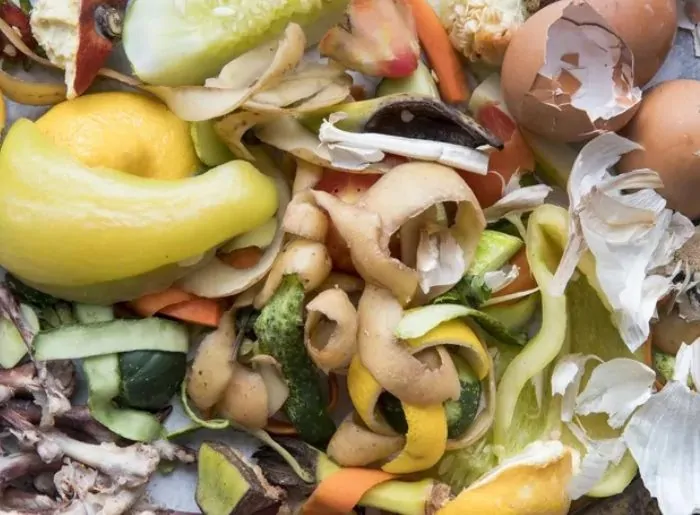How to Reduce Food Waste?
Food waste is one of the biggest environmental challenges of our time. In the UK alone, food waste costs households and businesses billions of pounds every year. According to WRAP (Waste and Resources Action Programme), around 9.5 million tonnes of food is wasted annually in the UK. But what is food waste, and why is tackling it so crucial for our future?
In simple terms, food waste is any edible food that ends up in the bin rather than being eaten. This includes everything from leftover meals to spoiled produce and excess ingredients thrown away during cooking or manufacturing. The shocking food waste facts show that about one-third of all food produced globally is wasted — enough to feed billions of people.
Luckily, there’s a lot you can do to reduce food waste at home, in your workplace, and within your community. In this guide, we’ll explore practical tips for cutting down waste, explain how food waste recycling works, discuss what happens to food waste in the UK, and look ahead to the upcoming food waste legislation UK 2025 that will transform how we deal with unwanted food.
Why Does Food Waste Matter?
Before we dive into how to reduce food waste, it’s worth understanding why it’s so damaging. Wasted food is not just about throwing money away — it’s an environmental disaster too. When food decomposes in landfills, it releases methane, a greenhouse gas far more potent than carbon dioxide.
Additionally, think about the energy, water, and resources used to grow, process, transport, and package that food — all wasted when food ends up in the bin. That’s why governments and environmental organizations worldwide are encouraging households and businesses to take food waste disposal seriously.
How to Reduce Food Waste at Home
Reducing food waste starts in your own kitchen. Here are some practical tips:
1. Plan Your Meals
Plan your weekly meals and make a shopping list. This helps you buy only what you need, preventing food from sitting in your fridge until it spoils.
2. Use a Kitchen Food Waste Bin
A kitchen food waste bin is a simple yet powerful tool. It encourages you to separate organic waste from general rubbish. Many councils provide free or subsidised food waste bins, making it easier to send scraps for composting or anaerobic digestion instead of landfill.
3. Understand Date Labels
Confusion around ‘Use By’ and ‘Best Before’ dates leads to unnecessary waste. ‘Use By’ is about safety, while ‘Best Before’ is about quality. Many foods are perfectly safe to eat after the ‘Best Before’ date.
4. Store Food Properly
Proper storage extends the life of fresh produce. Keep fruit and veg in the right drawers, store leftovers in airtight containers, and freeze food if you can’t eat it in time.
5. Get Creative with Leftovers
Make soups, stews, or smoothies with ageing vegetables and fruit. Leftover roast chicken can become sandwiches, salads, or curries. Reducing food waste can actually inspire more interesting meals!
How to Reduce Food Waste in Restaurants and Businesses
It’s not just households — businesses must step up too. Restaurants, supermarkets, and catering services can implement better stock control, donate surplus food to charities, and educate staff on sustainable practices.
Large-scale food producers can also invest in technology that turns waste into energy or animal feed. These initiatives help achieve national targets to slash food waste.
Food Waste Recycling: What Happens to Food Waste UK?
Ever wondered what happens to food waste UK residents diligently separate? When you put scraps in your food waste bins, your local council usually collects it for food waste recycling.
Here’s what happens next:
- The food waste is transported to an anaerobic digestion plant.
- Microorganisms break down the waste, producing biogas (which can generate electricity) and nutrient-rich fertiliser for farms.
- This process keeps food waste out of landfills and reduces harmful methane emissions.
This is why using a separate kitchen food waste bin is so important — it turns waste into a valuable resource instead of an environmental hazard.
Food Waste Legislation UK 2025: What’s Changing?
New food waste legislation UK 2025 aims to make separating and recycling food waste mandatory for all households and businesses. The UK government wants to ensure that no recyclable food waste ends up in general waste bins by 2025.
Businesses, especially in the hospitality and retail sectors, will face stricter rules on waste separation and reporting. Local authorities are expected to expand food waste collection services, making it easier for households to comply.
What Can You Do?
As a UK resident, you can prepare for these changes now:
- Start using a kitchen food waste bin if you don’t already.
- Read up on your local council’s collection services.
- Educate your family and friends about the benefits of food waste recycling.
- Support businesses that are transparent about their food waste reduction strategies.
5 Surprising Food Waste Facts
Here are some eye-opening food waste facts to inspire action:
- If food waste were a country, it would be the third-largest emitter of greenhouse gases after the US and China.
- UK households throw away an average of £700 worth of food per year.
- Around 70% of UK food waste comes from homes, not businesses.
- Bread, milk, and potatoes are among the most wasted foods in the UK.
- Reducing global food waste by just 25% could feed every hungry person in the world.
Better Food Waste Disposal Means a Better Future
Taking small steps today can make a huge difference tomorrow. By planning your meals, storing food correctly, using a kitchen food waste bin, and supporting food waste recycling, you’re not only saving money but also protecting the planet.
When 5food waste legislation UK takes full effect, the UK will be better prepared to meet its ambitious waste reduction and net zero carbon goals. Be part of the change — rethink how you shop, cook, and dispose of leftovers.
Final Thoughts
What is food waste? It’s a reminder that every crumb counts. Reducing food waste isn’t complicated — it’s about making mindful choices every day.Whether you’re a household looking to save money, a restaurant cutting costs, or a business aligning with new laws, the steps are clear: reduce, reuse, and recycle. Together, we can make food waste a thing of the past. If you’re unsure how to handle large volumes of leftover food or need help setting up proper disposal systems, consider partnering with professional waste management services to ensure your waste is collected, processed, and recycled responsibly.



